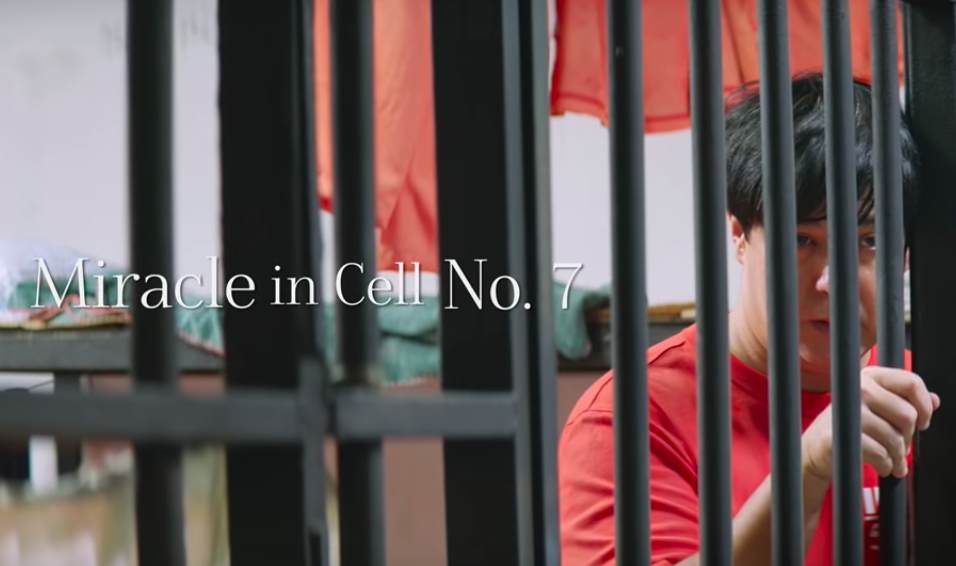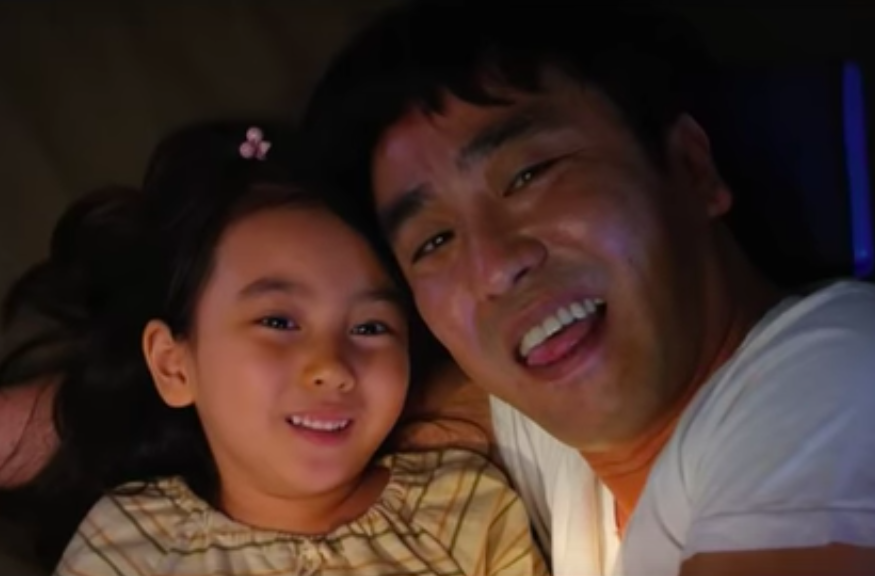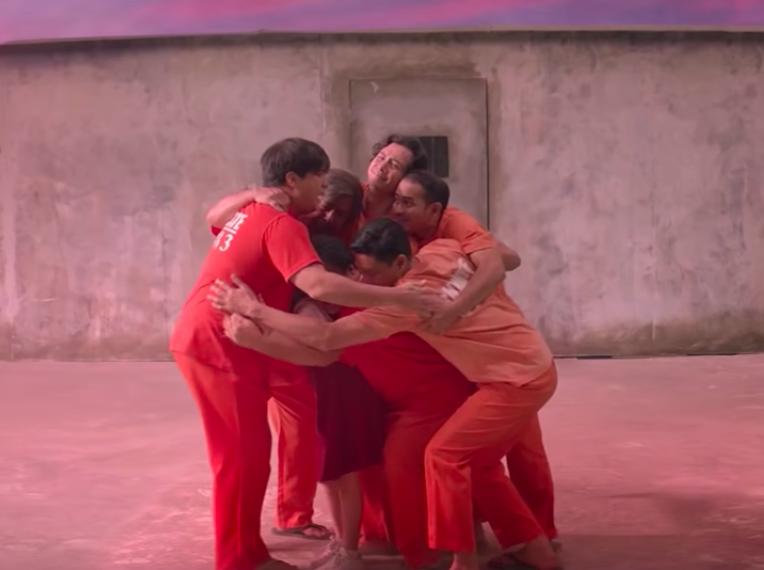Why ‘Miracle in Cell No. 7’ is a miracle of a movie

Image: screen shot from official trailer of “Miracle in Cell No. 7”, Viva Films
When we imagine a miracle, it usually involves the supernatural or the divine being manifest to us mortals. We think miracles are almost synonymous to impossibilities — and yet in the movie “Miracle in Cell No. 7”, we see how a rare act of kindness formed a ripple effect in people’s lives, pushing them to change for the better, to achieve their own versions of a miracle.
“Miracle in Cell No. 7” is a South Korean drama film released in 2013, about a mentally challenged man who was wrongly imprisoned for a crime he did not commit. The film explored his attempt to live his life in prison while keeping his ties with his daughter. Six years after the Korean film’s release, an adaptation made its way to the Philippines, giving us the same heart-shattering story.
The Filipino adaptation of “Miracle in Cell. No. 7” takes most of its elements from the original version with a few local twists. Veteran actor Aga Muhlach takes the role of the mentally challenged father Joselito “Lito” Gopez, who was wrongly accused of kidnapping, raping and killing a young girl, who also happens to be a high ranking police official’s daughter. Young actress Xia Vigor shone as the adorable loving daughter Yesha. The setting of the father and daughter’s home is also localized as a small house in an impoverished neighborhood along the Pasig River.

Image: screen shot from official trailer of “Miracle in Cell No. 7”, Viva Films
The movie runs on two narrative streams: one in the present time when Bela Padilla — playing the older Yesha — reopens her father’s case to clear his name. The other story line, which occupies the majority of the movie’s screentime, is about the father and daughter’s life before and during Lito’s arrest in 1997. Although the adaptation was at times unclear about the cuts of the time differences, the film was able to retain the crux of the conflict — the Sailor Moon bag which Lito promised to his daughter.
The movie achieves universality because it shows the love between a father and child in its purest form. Lito innocently followed Secretary Yulo’s daughter to where they could buy another Sailor Moon bag, when a series of unfortunate accidents happened. Lito slipped and fell on the sidewalk which made him lose his sight of the child. The child unfortunately also slipped on wet pavement, landing head first on the ground, and getting hit by a huge cement brick falling on her head. Lito tried to perform CPR on the injured child but it was viewed with malice by a witness. Lito was then coerced to admit his fault to crimes he did not commit, after being misled by the police that they would set him free and even buy Yesha’s bag.
The movie is not only about love but also about the quest for truth. Yesha grew up to be a lawyer after being adopted by Johnny San Juan, played by John Arcilla, the jail deputy in-charge of Lito’s prison back in 1997. The Filipino version spent less time on the trial but kept the most important scenes, like when Padilla presented pieces of evidence overlooked and manipulated by the authorities. Padilla was so convincing, it could make any judge absolve Muhlach’s character of his alleged crimes.

Image: screen shot from the original Korean film, “Miracle in Cell No. 7”
Lito’s mischievous cellmates who were supposed to be “bad men” also gave outstanding performances. Joel Torre was the group’s boss Sol; JC Santos was the wacky Mambo; Mon Confiado was the timid Choy; Soliman Cruz was the loving Tatang Celso; and Jojit Lorenzo was the initially self-centered Bong. All of them strived to do good and help Lito take care of Yesha. These men’s acts of kindness made them earn their own spots in the viewers’ hearts. We got to see some of them develop as individuals, like Boss Sol who learned how to read, and Bong going from being indifferent of Yesha to being the one most grateful for her. It is a bit unfortunate, though, how the others were not able to tell a bit more about their own stories, like Tatang Celso and Choy.
Arcilla playing as Johnny San Juan is also notable. His character shifted from being the tough prison guard who lost a child to being a helpful friend to Lito and loving foster father to Yesha. The adaptation was also able to give some more background on unexplained details in the Korean original, like the cause of death of San Juan’s son and the origin of Yesha and Lito’s dance moves.
The movie’s prison cell and how the adaptation chose to manipulate it was also clever. In the original, their prisons were closed confinements with metal doors, while Philippine prisons have metal railings. The metal railing poses a harder challenge for the adaptation to hide the kid and might even be viewed as a plot hole, but the inmates were able to hide Yesha in the small space under the bed by using an improvised curtain made from a blanket, and in fact, such elements can be seen in local prisons. The movie tried its best to make do with what it had while staying true to the depiction of how local prisons are.

Image: screen shot from official trailer of “Miracle in Cell No. 7”, Viva Films
The Filipino adaptation also worked in knowing its audience and catering to their needs. Compared to the original, the adaptation throws more comedic punchlines. This reflects the Filipino character to always make light of things even through the gravest situations. Santos as Mambo is probably one of the best comic reliefs in the movie.
The movie is admittedly lighter on the drama than its original but it did not compromise the execution of its climax. Muhlach showcased his skill as an actor and his chemistry with Vigor as they performed the heartwrenching scene where Lito begs for his life before facing his death sentence. Sniffles in local theaters could be heard, as most moviegoers could attest, particularly on the scene where Lito apologized for a crime he did not commit to officers who no longer have the power to save him.
The Korean version also is heavier right through the end. Ye-Seung (Yesha) said goodbye to her father by staring at the balloon tangled on the prison’s wires, then symbolically seeing it fly away, meaning her father was finally free from his mistrial. The adaptation on the other hand provided closure in a happier way. In an imaginary scene, Lito appears to be older with gray hair after the trial. He finally sees his daughter as a free man, and the two give each other one final hug, even recreating their signature dance moves.

The Filipino adaptation of “Miracle in Cell No. 7”, just like its Korean counterpart, is definitely a movie worth watching, simply because it reminds us of a universal truth – the truth that love, in its purest form, could make people lay down their own life for others. In return, love is what keeps the departed alive in our existence, and the injustices they suffered from still being worth fighting for. Lito’s kindness, particularly whenever he constantly tried sacrificing his own life for others, continued to reap rewards even long after he passed on. And that is the true miracle. JB
RELATED STORIES:
Aging out: The fate of abandoned Filipino children who don’t get adopted